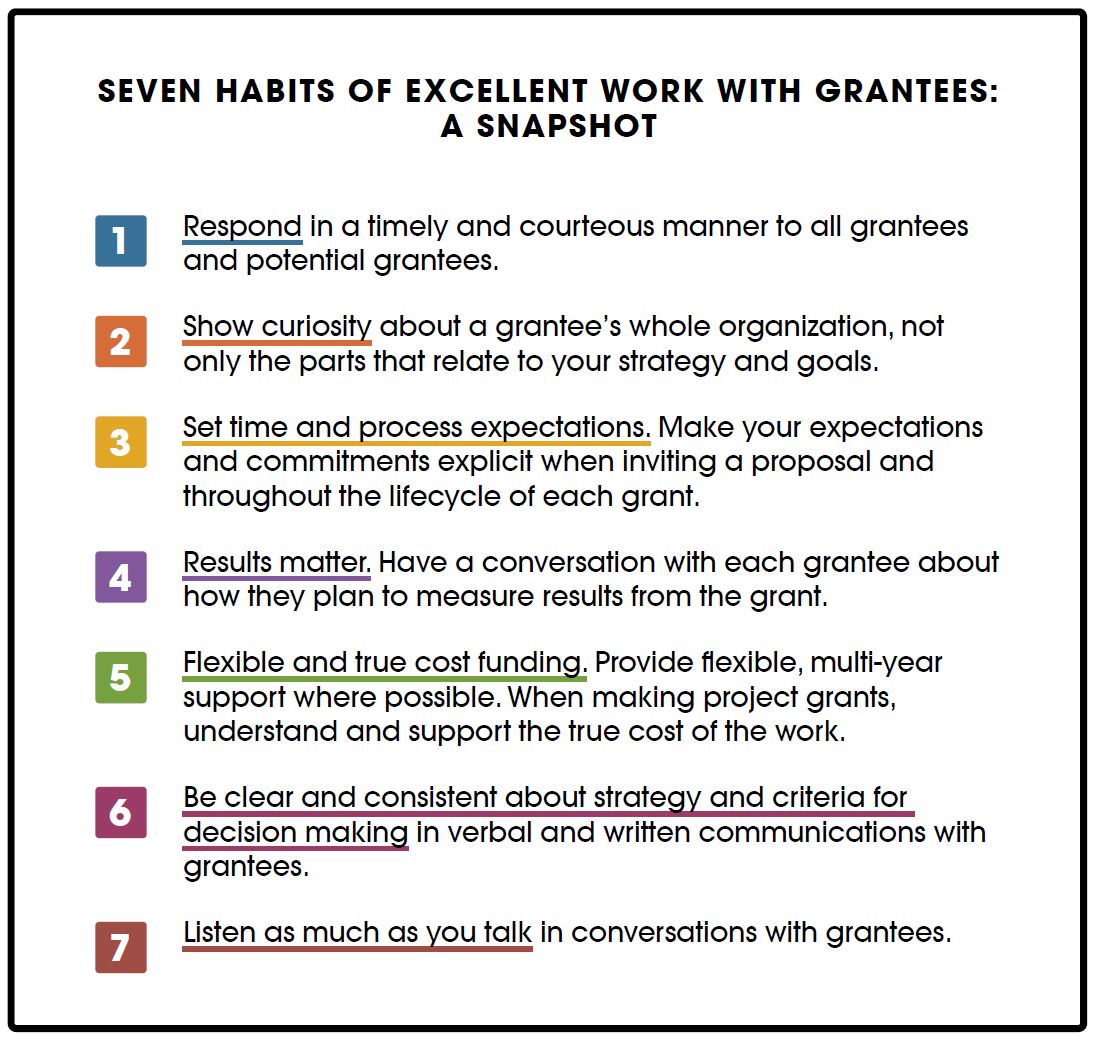Seven habits of excellent work with grantees: Practical tips for program staff
 Yuri Arcurs/Getty Images
Yuri Arcurs/Getty Images
Process to Develop the Seven Habits
We didn’t pull these habits out of thin air. In addition to the feedback from the 2018 Grantee Perception Report, we also looked to CEP’s research on what contributes most to effective funder-grantee relationships. There are five main factors (see diagram), so we ensured the habits covered each of those areas.
Further, we commissioned a scan to learn from similar guidance other funder or infrastructure organizations may have already created. We didn’t find quite what we were aiming for. We were looking for something more behavioral and aimed at excellence. Next, we conducted interviews with all 55 of our program staff to hear their reflections on their work with grantees, where they feel they do excellent work, where they hope to improve, and where they would like more support.
Once we articulated a draft of the habits, we did some testing. We invited staff volunteers to try building one habit over a few months — and 32 of 55 program staff signed up! The testing phase was helpful in crystalizing how we shaped and described the habits, provided insights on how to put the habits into practice, and it helped build momentum internally to embrace and adopt the habits. In parallel to staff testing, we also asked a few program staff alumni, other funders, philanthropic infrastructure groups, and grantees for their feedback on the draft habits guidance. You will see several grantee quotes throughout the guidance. Everyone who contributed feedback is listed in the acknowledgements.
Measuring our Progress
We know sometimes things will get busy and habits might slip. That is OK and no one is immune to slips from time to time. We encourage staff to build systems so they can get back to the habits as their routine behavior. In addition, we will build reflection on the seven habits into our annual performance review process — not to enforce compliance but rather to create the opportunity for staff to reflect on their work with grantees, identify strengths and areas for improvement, and determine whether they need or want additional support. Of course, periodic Grantee Perception Reports will continue to provide us with valuable feedback on our progress as well.
The Hewlett Foundation must work in respectful partnership with grantees if we want to achieve our goals. We hope the articulation of these habits provides staff across all programs with the support and flexibility to do consistently excellent work with grantees.





